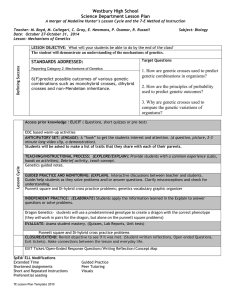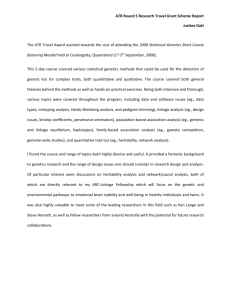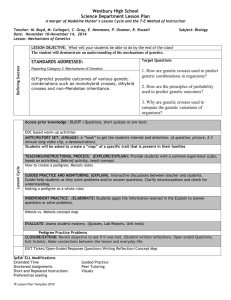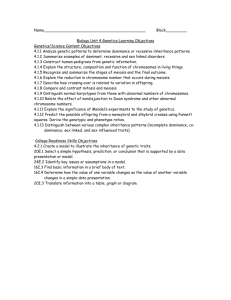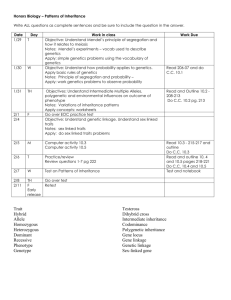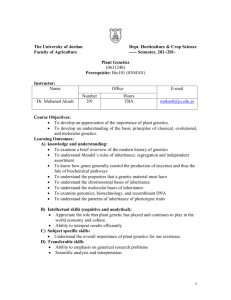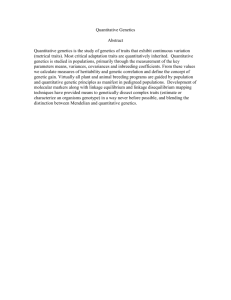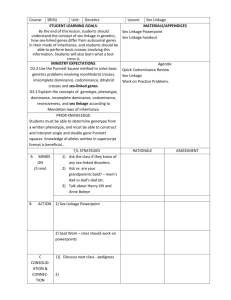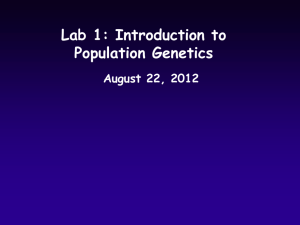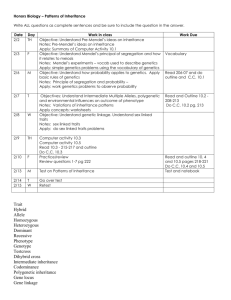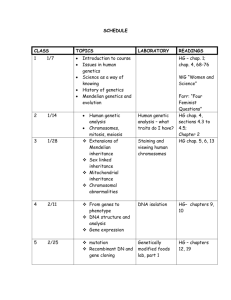Exam I Study Guide
advertisement
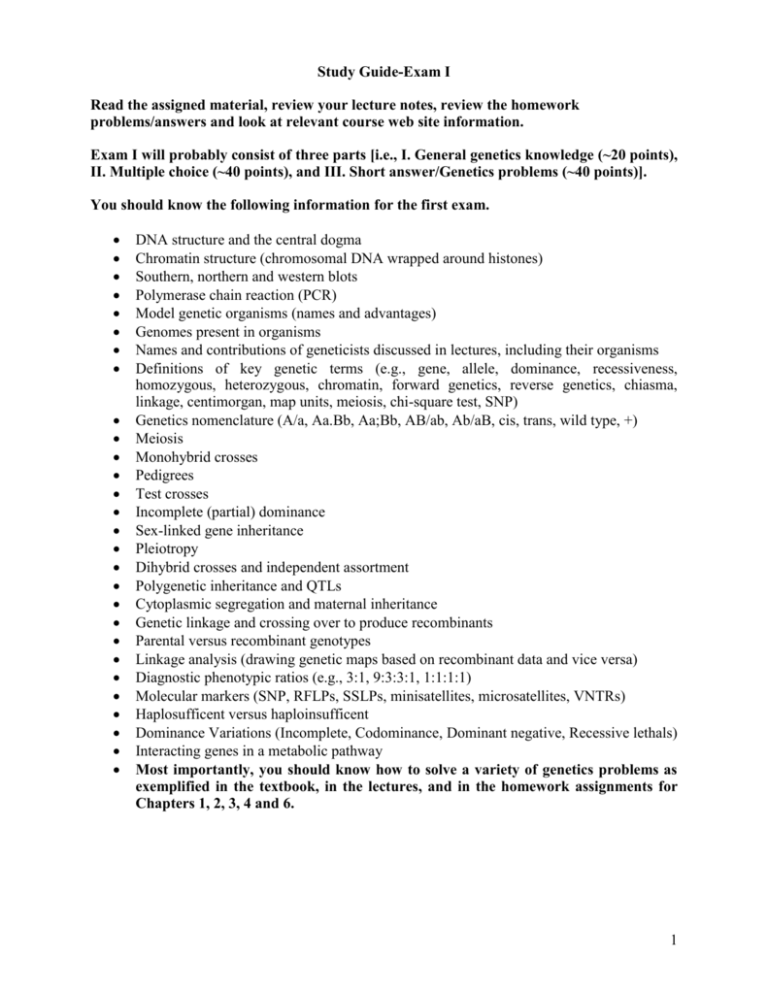
Study Guide-Exam I Read the assigned material, review your lecture notes, review the homework problems/answers and look at relevant course web site information. Exam I will probably consist of three parts [i.e., I. General genetics knowledge (~20 points), II. Multiple choice (~40 points), and III. Short answer/Genetics problems (~40 points)]. You should know the following information for the first exam. DNA structure and the central dogma Chromatin structure (chromosomal DNA wrapped around histones) Southern, northern and western blots Polymerase chain reaction (PCR) Model genetic organisms (names and advantages) Genomes present in organisms Names and contributions of geneticists discussed in lectures, including their organisms Definitions of key genetic terms (e.g., gene, allele, dominance, recessiveness, homozygous, heterozygous, chromatin, forward genetics, reverse genetics, chiasma, linkage, centimorgan, map units, meiosis, chi-square test, SNP) Genetics nomenclature (A/a, Aa.Bb, Aa;Bb, AB/ab, Ab/aB, cis, trans, wild type, +) Meiosis Monohybrid crosses Pedigrees Test crosses Incomplete (partial) dominance Sex-linked gene inheritance Pleiotropy Dihybrid crosses and independent assortment Polygenetic inheritance and QTLs Cytoplasmic segregation and maternal inheritance Genetic linkage and crossing over to produce recombinants Parental versus recombinant genotypes Linkage analysis (drawing genetic maps based on recombinant data and vice versa) Diagnostic phenotypic ratios (e.g., 3:1, 9:3:3:1, 1:1:1:1) Molecular markers (SNP, RFLPs, SSLPs, minisatellites, microsatellites, VNTRs) Haplosufficent versus haploinsufficent Dominance Variations (Incomplete, Codominance, Dominant negative, Recessive lethals) Interacting genes in a metabolic pathway Most importantly, you should know how to solve a variety of genetics problems as exemplified in the textbook, in the lectures, and in the homework assignments for Chapters 1, 2, 3, 4 and 6. 1
